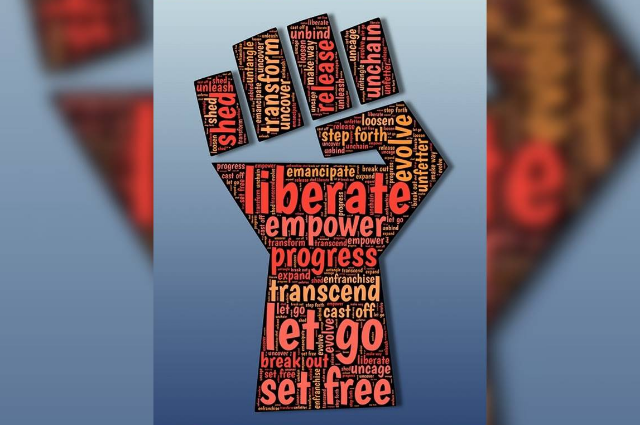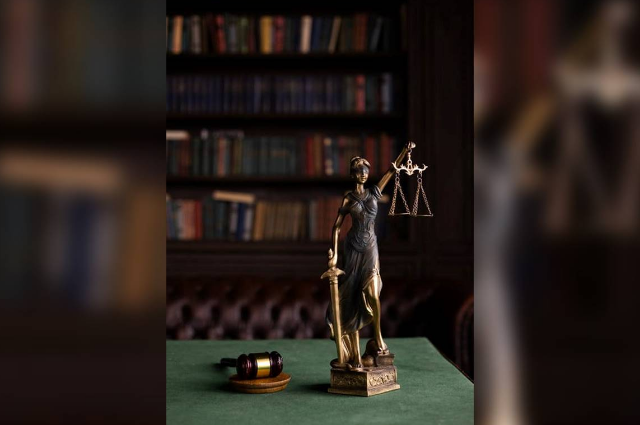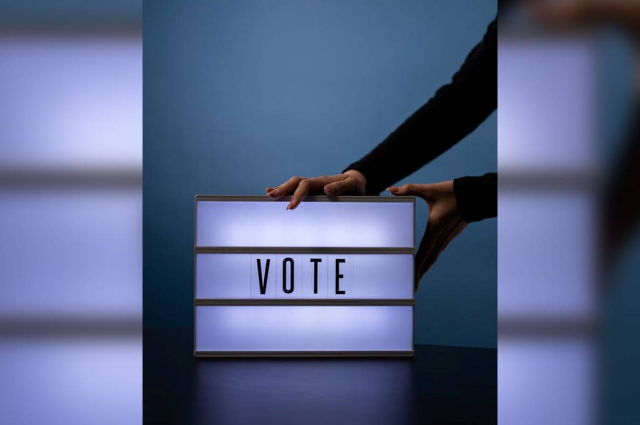Introduction
“One of the penalties for refusing to participate in politics is that you end up being governed by your inferiors.” - Plato
Defection refers to a legislator switching their support from one political party to some other. Floor-crossing has historically been associated with this expression. The sudden increase in the number of party leaders that are actually in office, shifts in the political balances between regional and national groups and their relative strengths, the fact that no single party can control the Parliament, and the existence of various parties and various trends of party politics in states have all had an influence on India's modernization and public administration. Political defections are bad, and this has been a topic of high importance. If it is not stopped, our democracy's core roots and the values that support it are likely to be threatened. To minimize member defection and improve our country's political structure, major parties must recognize the increasing requests for electoral political changes and take action to implement intra-party democratization.
The Revolving door of Party politics
Political parties occasionally participate in noticeable progressive movements. The movement gives the political party the necessary power, while the administration gives them the necessary authority to maintain discipline among its members. Given that elections in democracies are contested along party lines, both are crucial. If party members without strong moral beliefs are free to swap sides at any time due to the wide availability of political parties fighting with one another to attract turned-away members, both power and strength may be compromised. It should be highlighted, however, that this switch in loyalty by party members occasionally may be justified due to the organization's treatment of criticism or when the party has deviated from its declared doctrine or ideological direction. Defection is the term used to describe such a shift of loyalty.
A variety of factors have affected India's modernization and governance process, including the quick increase in the impactful proportion of parties, shifts in the overall power of regional and national groups and the political equations among them, and the failure of any one group to regulate the parliament, and the existence of various sides and various trends of national politics in states.
State-level objectives and election aspirations are now being considered at the federal level due to the emergence of smaller parties to power in states and their major position in alliance governments at the center. Local parties' primary concern when deciding whether to enter or participate in alliances is whether doing so will improve their chances of winning elections in their state of residence. This situation is regarded as having both space and temporal components, or a "revolving door." These regular changes in alliance allies show that Indian organizations have not yet established standards for dividing up control and forming long-lasting coalitions.
Reasons why some politicians change political parties?
In the history of representative democracy, the concept of political defections has always raised a problematic moral dilemma. The act of abruptly leaving the party to which the defector belongs and joining some other party (commonly a rival party) after winning the popular vote under the flag of the prior party is usually viewed as electoral malpractice and conduct of opportunism.
Defections could also be seen as a way to maintain progressive values like freedom, equality, and fairness. Defection may well be viewed from the defector's perspective as a principled protest intended to restore democracy, both inside the offending party and in the promotion of constitutional democracy well within the nation. Such dissenters may also find the worth of fairness in the process of switching sides to other sides in their practice of self. To put it another way, such defections are viewed as acceptable since it appears that they are motivated by greater issues for fairness and equality, a justice that assumes the party bosses will treat its leaders fairly and with respect. In electoral democracies, this poses an unsolvable moral conundrum regarding the act of switching sides.
In addition, the degree of internal party transparency and the kind of party structure has a significant role in the type of defections that occur in Indian political groups. A party with a transparent structure, equal respect, and opportunity for all members will have a much better discipline among its members rather than a party devoid of \ all these characteristics. This is because members feel more assured of a certain career progression within such structured and nationalist parties if they can faithfully represent the party. On the other hand, parties with weaker organizational structures and a strong emphasis on personalities are more prone to defections since decisions are frequently made based on the whims of the supreme leader with deeply corrupt motives.
Individuals lose confidence in their political careers inside the party as a result of the lack of increased transparency and social mobility regulations, thus they turn to defections to other parties or launch new political organizations. Since party members feel more sure about their political future in a much more progressive and structured party machine, the research reflects that a higher level of internal party transparency and institutional coherence discourages party members from defecting. On the other hand, parties that are managed solely by the arbitrary orders of the top leader, quarrels, and personal differences within the lowest tier of leadership, may be more prone to cause defection for reasons related to the dissatisfied leaders' greater political careers.
Elaborating Anti-defection law
The function of major parties in a parliamentary democracy is acknowledged by an anti-defection statute. This is predicated on the idea that, when elections are held, political parties are the ones who provide the voters with specific programs or manifestos, nominate their representatives, and spend money on election campaigns. Political decorum requires that after these candidates are elected, they continue supporting the party and its objectives, upholding party unity. Furthermore, it has been asserted that a political party's power depends on how strongly its shared views are held. If various party members are discovered to have divergent viewpoints on crucial legislative and policy matters, the public faith in the party may be weakened. Political parties were not included in the Indian Constitution before the 1985 anti-defection statute.
Following the assembly elections in 2010, it became clear that voters in different Indian states did not have clear support for a single party, which serves as evidence of the multiple parties that dominate the Indian political scene. Such decisions have sparked extended durations of confusion and talks between winning candidates and the heads of national and regional political parties.
Gaps in Anti-defection law
There are instances where a party's whole legislative assembly and its leader switch to some other group, which then takes power overnight. In the state Assembly and even in Parliament, there have been several defections. However, a recent development is the mass defection of an entire group of a national party.
According to the defection law in the 10th Schedule of the Constitution, a legislator is ineligible if they willingly leave their party or cast votes in the House against the wishes of their party. Members of a party are required to follow the whip, which is the order given to them by the party. But determining whether someone left a party freely or not can be challenging because it depends on the specific information of each situation.
The Supreme Court ruled in the cases Jagjit Singh v. the State of Haryana (2006) and Rajendra Singh Rana v. Swami Prasad Maurya (2007) that the legislator's actions should be used to determine whether someone left a party voluntarily or not. Voting against a party's whip is an easy scenario that doesn't need any analysis. The proof of the cast votes can be used to make a decision. However, the majority of situations that have required the Speakers' decisions fall under the "voluntarily giving up" classification. Many conflicts have developed as a result of rulings in this type of matter.
Excessive delays in judgment are a major issue in anti-defection cases. The 10th Schedule does not specify a deadline for deciding a case of dismissal. Some Individuals have most effectively taken use of this flaw. Defectors tend to reap the benefits of their defection for years without a choice being made. Finally, the Supreme Court has now established a three-month deadline for the Speaker to decide the matter (Keisham Megha Chandra Singh v. Speaker, Manipur Legislative Assembly, Supreme Court, 2020). It is expected that this ruling will put an end to purposeful delaying in the handling of disqualification matters.
Another flaw is that a defector is not automatically disqualified from running for office for the balance of the House tenure. Therefore, a defector has six months to return to the same House. Political defection is an unethical practice. A candidate who was chosen by the electorate based on his beliefs, his public stance on problems, or his dedication to a particular cause abandons all of it and joins a rival party, making fun of the electorate's decision.
Challenges to Indian Democracy
One of the main challenges facing India's parliamentarian system is the politics of defection. Rajiv Gandhi oversaw the passage of an anti-defection statute in the Indian Parliament in 1985 through the 52nd Amendment to the Constitution, which inserted the 10th Schedule to the Constitution. However, if we delve deeper, we'll discover that even 35 years after it was passed, the safeguard hasn't been able to stop the rot of questionable loyalty of the elected representatives of the people who don't treat this Law with respect, nor has it managed to win over any parties who appear to be subtly making a profit from such a trend. Some Legislators have so frequently engaged in this dishonest practice of switching parties out of self-interested alliances absent of any ethical substance. They used it to advance their narrow interests by abusing the Anti-Defection Law's loopholes.
To prevent the abuse of democracy, the present Anti-Defection Law requires improvement. The anti-defection law should be under the control of a central committee on legislative concerns rather than being left in the Speaker's hands, where there is a risk of political abuse. The committee, which will have two impartial members who will be chosen by a prestigious group of jurists, should comprise representatives from all groups. Even if the Governor is allowed to suggest a member for such an unbiased committee, there is a protected threat. A constitutional scholar will be one of the two nominees for the position of representation. A renowned social professional will be the other. Each committee member will have equal authority. As well as the value of each individual's viewpoint will be equal. The law can be used in a completely new way in this approach.
Conclusion
Political parties are an integral aspect of politics because they serve as the main bearers of the nation's constitution. Political parties are used for a variety of purposes, including the choice of members, voter participation, program creation, and the passage of legislation. They are the only groups in the nation that strive to regulate the parliamentary processes, the government bureaucracy, and the state instrument. They furthermore engage in competitive pressure to do so. Accordingly, it is strange that so little has been accomplished to advance the implementation of intra-party governance inside Indian parties. Political parties must become aware of the increasing requests for electoral political change and move into establishing intra-party democracy, which would lessen candidates' defection and improve our legislative framework.
References
- https://www.researchgate.net
- https://www.nios.ac.in
- https://www.orfonline.org
- http://mainstreamweekly.net
- https://papers.ssrn.com
- https://papers.ssrn.com
- https://papers.ssrn.com
- https://papers.ssrn.com
- https://papers.ssrn.com
- https://www.researchgate.net
- https://ejpr.onlinelibrary.wiley.com
- https://www.epw.in
- https://www.thehansindia.com
- https://www.brainyquote.com
- https://www.deccanherald.com






